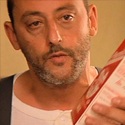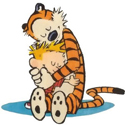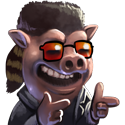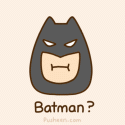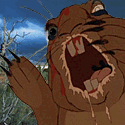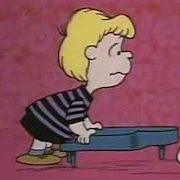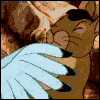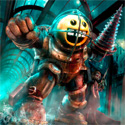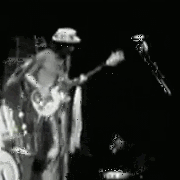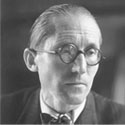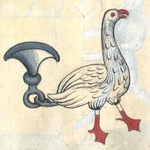|
I finished Geisha by Liza Dalby a few days ago and haven't started anything new. It was the 25th anniversary edition and although I'm sure quite a bit of the demographic information has aged out, it was a fascinating look into the way that geisha have been intertwined with Japanese cultural and carried through all of the post-war reconstruction.
|
|
|
|

|
| # ? May 14, 2024 22:59 |
|
RC and Moon Pie posted:
I do love The House of Mirth. The Age of Innocence is really good too, but not as good as The House of Mirth. E=mc2: A Biography of the World's Most Famous Equation (2000) - David Bodanis  Everyone knows that E=mc2 is really important, but they usually don’t know what it means, and that’s frustrating, because the equation is so short that you’d think it would be understandable. It is, on first glance, one of the most intriguing ideas of recent literature: really explaining something that we all have heard of and yet know nothing about. Albert Einstein and those five symbols have changed the world as we know it and yet most of us could not, if threatened with death, even begin to explain how and why. Thus, this biography. A biography, Bodanis says, tells a story of something and by that story the something is explained. And so, with that in mind, this book delves into those five symbols, viewing the life of the equation as a story. First, dealing with the ancestors, Bodanis dedicates a chapter to each of the five symbols, explaining in detail what they mean and why they mean it. And in each of these chapters, he weaves fascinating stories, not just scientific treatises. Voltaire, Michael Faraday, Ernest Rutherford, Robert Oppenheimer, Galileo, these are just a few of the men who have interacted with this equation in meaningful ways. Told with real wit and literary skill, this book is as often hilarious and charming as it is heady and intellectual. Perhaps, no, probably, even more often. It’s in this approach to science that Bodanis achieves a masterful result; it’s less about the dry facts and more about the repercussions, the ramifications, the poetry of the universe and the lives of those people behind the symbols. By the time you’re finished, you feel as though you not only understand the equation (a fairly simple thought, really, as, Bodanis hints, all the truly great thoughts are), but also the people involved and the reasons why it means what it does. It’s a book that doesn’t shimmer so much as reflect. In reading the section dedicated to gravity and the measurement of it over distance, I raced up a flight of stairs fully ten times in order to drop various objects and really, for the first time in years, really watch something fall and really think about it . . . the natural world shines with a rare luminosity while one is in the thrall of Bodanis’ book; the sky seems deeper and wider than ever before. One finds oneself picking up large rocks and throwing them, seeing the mass, seeing the energy, watching the dust fly when they strike ground. It was, I believe, Annie Dillard who remarked on the similarity of purpose between prayer in the cathedral and the experiment in the laboratory. Both, she said with that elegant simplicity at which she excels, are simply humanity saying, “Hello?” And there is that elegant beauty and passion here; Bodanis takes heavy concepts and makes them, not just accessible, but openly life affirming. This is a book where the numbers, the concepts, are windows to the magic behind a blade of grass and insight into the incredible power resting in our own bodies. There’s a rare kind of sensibility here; it is the principle of this equation that began the world and it’s that same principle that will end the world. Fire or ice? Bodanis asks. At this point, it could go either way. And the ending of the book is one of rare stillness, rare beauty and embodies the pure literary and poetic perfection of scientific thought at its best. It is, finally, a hymn to potential, a hymn to fullness and to power, to power and consistency and how those two things, at bottom, are one and the same. A magical book, exploding on the inward eye with the power of journalism, the wit of satire and the starburst light of poetry. 5 out of 5 stars. Rogue1-and-a-half fucked around with this message at 20:12 on Nov 13, 2012 |
|
|
|
Just finished Capital. More than enough ink has been spilled over its substance, not least in these forums, so I'll confine myself to noting what an excellent read it was. I'd recommend it to anyone who enjoys a compelling and well developed argument, without regard to political or economic leanings. In that respect, I'd liken it to reading something like The Republic: you may not ultimately agree with the author (though perhaps he'll surprise you) but you can hardly fail, at a minimum, to marvel at the intellectual architecture he's constructed. For anyone thinking of wading in, but concerned that it might be tough to get through in some places, David Harvey's books and (particularly) his free online lecture series are great resources.
|
|
|
|
I just finished Chris Beckett's Dark Eden. On the whole I found it a fairly enjoyable and quick read. It looks at the descendents of two survivors of a damaged spaceship on an alien planet. The world is tide locked, and heat and light that is there is given off by the strange flora and fauna. The humans on the planet are all inbred and live a subsistence lifestyle. To the novel's beginning, it has been a somewhat matriarchal society. It is also conservative and static in its traditions. Of course, all this changes when the book's protagonist, the iconoclast John, challenges the status quo. This is a somewhat well-trod path, concerning the end of innocence and the importance of growth and change. The conflicts can be seen coming, as can the general trajectory of the book. Despite that, the world itself, alien as it is, gives it a fresh feeling, as the reader cannot know how any given challenge will be solved. The character of John, himself, is also interesting as a study of the role of agitators and dissidents. The other characters - Tina, a sometimes-girlfriend of John, and his cousins Gerry and Jeff - are perhaps less interesting. What I found irritating about the other characters is how self-aware all of them are of their roles. It's perhaps understandable in John's case that he would ruminate on his position - he took it on himself to lead, and what defines him is his will to be the strong, progressive leader. But all of the others can see effortlessly through him, and through other characters. For example, Gerry, who was somewhat of a crony of the protagonist, reflects on the fact he isn't very intelligent and will unreservedly support the protagonist. It's very blunt character development, and I very much doubt people are always so aware of what drives them and others. In my experience, a person will fabricate all kinds of conceits in order to avoid thinking in a way that deprecates themself. A second flaw I found with the novel was that it could have dealt with some of the ideas in it a little bit more directly. For example, I think more could have been done with the effects of inbreeding, given that by the nature of the population on Eden it is pervasive. More exploration of the alien landscape would have been nice, also - the landscape is there and it is interesting, but it's not as well developed and explored as, say, something from a Neal Asher novel. Overall I found this a flawed but enjoyable read. I will probably read the sequel to this as I want to find out what happens next. Neurosis fucked around with this message at 18:59 on Nov 14, 2012 |
|
|
|
I finished Pirate Cinema by Cory Doctorow over the weekend. Fun book, nothing too serious or earth shattering. I'd say it's par for the course from Doctorow. He's pretty good at taking current issues (this time, remix culture) and placing them in a story that a YA audience can enjoy.
|
|
|
|
Rogue1-and-a-half posted:
I really like this book, too. I also recommend his book about electricity, The electric universe. The shocking true story of electricity. It's not as excellent as E=mc2, but still an enjoyable read.
|
|
|
|
I just finished The Magic Mountain. God, Settembrini sure can ramble. Overall I liked it, but it definitely taxed me considerably. It offers a comprehensive (like, really comprehensive) look at German (or at least Mann's) worldview pre- and post-World War I. But in truth I was more interested in the narrative and our 'so-so' protagonist Hans Castorp, whose visit to a tuberculosis hospital is suddenly lengthened considerably. There were parts that were a chore to get through (Settembrini's and Naphta's extended discussions in particular would go on considerably, to the point where even Mann cut them off), and parts that were very engaging (Joachim's passing and subsequent appearance) and even haunting. 3.5/5.
|
|
|
|
My thesis is finished! I have time to read again! The Poisoner's Handbook: Murder and the Birth of Forensic Medicine in Jazz Age New York by Deborah Blum. A bit of prohibition-era history, a bit of chemistry and biology and toxicology. Each chapter focuses primarily on a different toxin (or other dangerous substance like radium), discussing its effects on the human body, what tests were used to detect it and how they were developed, and some famous cases involving it; at the same time, each chapter also advances the history of the New York Coroner's Office, Doctors Gettler and Norris, and Prohibition by a few years. Overall, a good read, although I still like Ignition more. The Excalibur Alternative by David Weber. Something of a disappointment; this was pitched to me as "aliens abduct a bunch of fourteenth century knights and soldiers to fight for them, they rebel", so I was kind of expecting space opera with some ancient/futuristic juxtaposition (both things Weber is fond of). Instead most of the book focuses on ground actions by the abductees against enemies of a similar tech level, which I don't, honestly, find all that interesting. The rebellion is dealt with in a single chapter at the end and the presumably quite exciting large-scale interstellar war that follows is left entirely to the imagination. I think I may also be going off Weber in general. Implied Spaces by Walter Jon Williams. This one, I went in expecting something cyberpunky and got something more space-operatic! This is the first book I've read by Williams and I quite enjoyed it. It reminded me somewhat of Asher's Agent Cormac series, actually. And since I'm still in a space-opera mood, my next stop is probably Williams's Praxis trilogy.
|
|
|
|
Ender's Game by Orson Scott Card. My first time reading Orson Scott Card. I guess I'll shoot through Speaker for the Dead next.
|
|
|
|
Just finished Trinity: A Graphic History of the First Atomic Bomb. It was very good, though a very quick read, and sparked my interest so now I guess i'll read a more in depth book about the Atomic Bomb.
|
|
|
|
gohmak posted:Ender's Game by Orson Scott Card. My first time reading Orson Scott Card. I guess I'll shoot through Speaker for the Dead next. Ender's Game any good? Is Card a decent writer? I just finished Silent Spring. Here are some thoughts. http://tomatoesandespresso.com/2012/11/17/saturday-review-silent-spring/
|
|
|
|
Homemaster posted:Ender's Game any good? Is Card a decent writer? Ender's Game is excellent. Speaker for the Dead is a bit more difficult, though its been a while since I read it. Just finished A Dance With Dragons and subsequently feel lost on what to read next.
|
|
|
|
AmericanGeeksta posted:Just finished A Dance With Dragons and subsequently feel lost on what to read next.
|
|
|
|
tonytheshoes posted:Just blew through The Reapers Are The Angels by Alden Bell, and it was fantastic. It was like William Faulkner wrote a zombie apocalypse. The cover looks like a YA novel, but it was anything but... It's a great story, with good characters, good interactions (I really dug every conversation between Temple and Moses), and, to me at least, a lot more hope than most zombie novels. Not that bad things don't happen, because holy poo poo, they absolutely do, but there's this overarching idea that by and large people are still mostly good, even at the end of the world. That was refreshing. My only gripes with it are the length (240 pages - I literally started and finished it on the same airplane), and the fact that the author really ignores some basic poo poo in order to tell his story. It's 25 years after zombies took over the world - when the main character comes to a ghost town, you really don't expect her to be able to flip on the lights and start pumping gas (in a car whose tires didn't rot after sitting for, again, 25 years. But this happens over and over again. I get why he does this - if you've only got 240 pages, you can't spend half of it with her learning how to siphon gas - but he doesn't even try to explain it. In some places, the power is still on. Why? It doesn't matter, it just is. I know, I know - my immersion. But still.
|
|
|
|
jackpot posted:My only gripes with it are the length (240 pages - I literally started and finished it on the same airplane), and the fact that the author really ignores some basic poo poo in order to tell his story. It's 25 years after zombies took over the world - when the main character comes to a ghost town, you really don't expect her to be able to flip on the lights and start pumping gas (in a car whose tires didn't rot after sitting for, again, 25 years. But this happens over and over again. I get why he does this - if you've only got 240 pages, you can't spend half of it with her learning how to siphon gas - but he doesn't even try to explain it. In some places, the power is still on. Why? It doesn't matter, it just is. I know, I know - my immersion. But still. I agree, actually. Didn't notice as I read, but I thought about it after the fact and little things like that were a little wonky. Still, I dug the story...
|
|
|
|
gohmak posted:Ender's Game by Orson Scott Card. My first time reading Orson Scott Card. I guess I'll shoot through Speaker for the Dead next. Yes. Then stop before you get into the period when the last bits of Card's brain turned to poo poo. I just finished the Wool omnibus by Hugh Howey and I guess it might be the best book I've read this year. Marvellous pacing, and characters the author actually made me give a poo poo about. That such a thing could come out of self-publishing... Howey deserves to have a lot of money thrown at him (at least if it makes him write more stuff like this).
|
|
|
|
Eeeee Eee Eeee by Tao Lin. Some reviewers are down on this book, but I enjoyed its inanity. It forgoes the elements of a typical novel in favor of creating an image of inescapable boredom and frustration with society. It's certainly not for everyone but is a quick read nonetheless. 4/5.
|
|
|
|
Hero: The Life and Legend of Lawrence of Arabia by Michael Korda. I've somehow spent my entire life in complete ignorance of any of the facts or myths of Lawrence of Arabia apart from his name. I picked up a couple of bios, and chose this one to start with because it appeared to focus more on the politics/military aspects of his life as opposed to his personality and social life. The first third of the book, covering the most exciting part of his life (desert guerilla warfare during WWI) are well written and exactly suited to my purposes. I probably should have stopped at the point when the war ended for Lawrence, because nothing else during his lifetime could live up to that kind of action.
|
|
|
|
Just finished The Best American Travel Writing 2012. It was the best on the I read so far.
|
|
|
|
Just read a short story called I Have No Mouth And I Must Scream. It was clever with the way it described AM's motivations. I hadn't thought that way about Artificial Intelligence before.
|
|
|
|
Peter the Great: His Life and World by Robert K. Massie. An ambitious 900 page brick, which won the Pulitzer for biographies. It's much more than a bio, also an attempt to describe Peter's whole cultural matrix, both within Russia and throughout Europe. I really like the structure of the book, which is roughly chronological, but mostly episodic. There are a million short chapters, each one a mostly self-contained period or subject. The author clearly admires his subject: he portrays Peter as a man with simple tastes and a loathing of pomp, with endless energy and insatiable curiosity about the way the world works, a visionary anxious to drag his country into the modern world (mostly) against their will. From our perspective today, these are admirable qualities—Peter's love of working with his hands and building stuff especially—but the author tends to underemphasize how much this cost: it is unknown how many people died while building St Petersburg from scratch (Peter wanted a warm water port for his brand new navy), but it is definitely a lot, and the author just mentions it in passing. There are lots of Peter's modernizing projects which surely caused his peasants greatly in taxes and death. Similarly, Peter's 21-year war with Sweden nearly bankrupted the country several times, and killed endless numbers of his subjects, but the author describes these things as though they were necessary for Russia to enter the community of modern Europe. There are several passage where the author talks about the immense cost of the war in Sweden in terms of lives and money, but he doesn't spend as much time talking about the similar costs to Russia, in a war that Russia started. And then this passage: quote:As he traveled again through the French countryside, Peter remarked, as he had on his way to Paris, on the poverty of the French peasants. The comparison between the luxury he found in the capital and what he saw outside surprised him and he wondered aloud to his friends how long this system could last. Oooh. Foreshadowing. I get it. But how does this not also apply to Peter's Russia? The snotty way the author talks about how Sweden and France had impoverished their subjects through war is never pointed at Peter. I probably shouldn't focus on the negative aspects of the book, since it really is a great read. The subject, for his flaws, is a fascinating, unique dude, a practical leader with modern views on how government should work. The structure of the book makes the sprawl of the 900 pages manageable, and the prose itself is delicious. I cannot recommend this book more.
|
|
|
|
Gushing Granny posted:Just read a short story called I Have No Mouth And I Must Scream. I just finished a Harlan Ellison compendium of his best short stories called Harlan 101. It has that, "Repent Harlequin!" Said the Ticktockman, and one with my favorite title, How Interesting: A Tiny Man. It also has essays filled with advice for other writers. It's a fantastic book. Ellison is self-publishing his entire backlist. Since more money goes directly to him, I didn't mind the $40 price-tag so much. It was worth it to read the best of a writer on par with Ray Bradbury.
|
|
|
|
I've got The Essential Ellison and most of the stories in it are fantastic. If you're just discovering him you're in for a treat. Some of his essays are really good reading as well, not just his short stories. Our Little Miss and The Tombs are the ones that really stand out in my mind.
|
|
|
|
While I can't find Harlan 101 from any UK distributors, I did find the Essential Ellison, so I'll Amazon that sometime soon. Thanks for the recommendation. I bet I'll enjoy him. He has this Gibson vibe.
|
|
|
|
Just finished up Devil Said Bang by Richard Kadrey. It's the 4th book in the Sandman Slim series. Pretty good. I was kinda pissed off at the end of the last book because it seemed like the story was leading up to a big, giant climax in another book, and then just got wrapped up in about 10 pages. This book starts a bit later than the last (after a short story), and it's actually pretty damned good. I started reading it thinking "eh, it's gonna suck. Irritating ending from the last book means this one is gonna end up being a great read until the end, and it's all gonna go to poo poo" It fleshes out a backstory pretty well, and almost seems like it could have been 2 books (short books, but still) ,since the story ends up varying a good bit about midway through. All in all though, it's pretty good, and if you like the series it's worth a read.
|
|
|
|
Caliban's War by James SA Corey. 4 stars on Goodreads (same score i gave to Leviathan Wakes, but that was more a 3.75 and this is more a 4.25). Better written, more intricate and more interesting than the first (which itself was still quite good); and HOLY poo poo that cliff-hanger. Wow. I really loved the new POV characters this time around. They added more variety to the cast, and made the book go along at a swifter pace: there was always something happening. My favourite new addition was probably the foul-mouthed politician Avasarala. Goddamn I want the third book now.
|
|
|
|
Hedrigall posted:Caliban's War by James SA Corey. 4 stars on Goodreads (same score i gave to Leviathan Wakes, but that was more a 3.75 and this is more a 4.25). Me too. Love this series and the second book was even better. Any other series compare to this series?
|
|
|
|
nate fisher posted:Me too. Love this series and the second book was even better. Any other series compare to this series? Nexus: Ascension by Robert Boyczuk is a stand-alone book that comes to mind, but it's waaaaay bleaker (think Peter Watts-level bleakness). Has a similar kind of one-ship-of-outcasts-against-everyone feel, though. I wrote a review of it on Goodreads: http://www.goodreads.com/review/show/279660426
|
|
|
|
Guns, Germs and Steel (Jared Diamond). Perhaps I'm more disappointed with my own expectations for the book than what Diamond actually wrote about. He'd belabor the same point over and over and not really explore things, except when he could shoehorn another reference to Papua New Guinea. The chapter on animal domestication was probably the most interesting and I found myself having to push myself through the rest. Not bad really, but overwhelmingly mediocre considering what he had to work with. Though not really the same subject, to me 1493 did a better job with the issues, particularly the germs part of the equation.
|
|
|
|
His Dark Materials. I am now incredibly sad. I had a horrible feeling around half way through that, inevitably, it would end in such a way. I had no idea how heart wrenching it would actually be when it happened though. Excellent all the same.
|
|
|
|
Dread Empire's Fall by Walter Jon Williams - the main trilogy (The Praxis, The Sundering, and Conventions of War) and the coda novella Investments. Overall, I enjoyed it. Exactly the sort of space opera I was in the mood for. As often seems to be the case in the genre, some major plot points hinge on people in positions of command being complete idiots, but this time around there is actually a good, plausible in-setting reason for it. My biggest complaint about the main trilogy is that the whole relationship clusterfuck between Sula and Martinez in book 2 was as frustrating as it was predictable, and in the end it was kind of depressing that Sula gets her achievements swept under the rug, loses both the men she loves, and ends up in a comfortable but backwater posting for the rest of forever, while Martinez sails on to fame and fortune as Lord Inspector for the newly colonized systems despite the fact that Sula is the more likeable character by a wide margin, while Martinez is kind of a douchebag. I mean, it's realistic, but it's still a bummer. The orbital mechanics in Investments were kind of questionable, too. Still, overall, I enjoyed them. Maybe a 3/5? Next is probably a bunch of C.J. Cherryh. jny posted:His Dark Materials. I am now incredibly sad. I had a horrible feeling around half way through that, inevitably, it would end in such a way. I had no idea how heart wrenching it would actually be when it happened though. Excellent all the same. Personally, the ending to HDM pissed me off because of an overwhelming feeling that the author had decided ahead of time that he wanted a "sad ending" and then had to pull an increasingly irritating series of excuses out of his rear end to ensure that that happened. But then, I also felt that the trilogy as a whole steadily declined and TGC was far better than either TSK or TAS.
|
|
|
|
Just finished Pure by Julianna Baggott, and I can't help but wish this book hadn't been restrained by the conventions and trappings of YA. Cool setting, so-so story, rudimentary symbolism, and unnecessarily written in third person present tense--a gimmicky annoyance that adds absolutely nothing. Why does YA lit do this? Overall, I DID find it intriguing enough to read the sequel when it comes out--and I actually liked it better than The Hunger Games, but it's not a high priority... YA just annoys me.
|
|
|
|
Finished The Mysterious Affair at Styles, by Agatha Christie. To be honest, it was my least favorite Christie story yet. It didn't have the simplicity and streamlining of the other stories - there were a dozen new clues being introduced in every chapter, and in the final cascade of reveals, I think that as many as four of the clues hadn't been presented earlier in the story (those being: the behavior of strychnine when combined with a narcotic, the behavior of strychnine when mixed in with a large dosage of medicine, the connection between Mary and the green cloth, and the fact that Mrs. Inglethorp didn't take her medicine the night before the murder). Unlike stories like The Moving Finger or A Murder is Announced, I never really had the feeling that I could figure out who the murderer was. I'm thinking of taking a Christie break; I've heard Ellery Queen is quite good. As a side note, I've been throwing around the idea of starting a Murder Mystery Challenge Thread of some sort. Read mystery novels together, stop at the chapter before the reveal, everyone pitches their theories, then see who got it right.
|
|
|
|
Fateful Choices: Ten Decisions That Changed the World, 1940-1941 by Ian Kershaw. From the amazon comments, the decisions were: 1. Britain's agreeing to fight on after the defeat of France. 2. Germany's deciding to wage war on the Soviet Union. 3. Japan's appropriating the colonies of countries at war with, or already defeated by, Germany, and allying itself with Germany and Italy. 4. Italy's deciding to invade Greece. 5. America's providing aid to England. 6. The Soviet Union's ignoring all signs that Germany was about to invade it. 7. America's intensifying its assistance to Britain by an "undeclared war" on Germany. 8. Japan's attacking the U.S. 9. Germany's declaring war against the U.S. 10. Germany's putting into operation the Final Solution. The author's overall theme is, there were options to these decisions, but the number of options became extremely constrained as time went on. This isn't an alt-history book, it seeks to put the decisions into the context of the times and see where things could have gone differently. For example, #9 Hitler's puzzling declaration of war following Pearl Harbor, unnecessary for him since he was not bound by treaty with Japan to do so, and with catastrophic results in the end, becomes less puzzling when you take into account 1) Hitler's belief that promising the declaration of war to Japan beforehand would make it more likely that Japan would attack the USA, 2)Hitler's belief that the USA would prioritize the Pacific war at the expense of aid to Britain and Russia. He was wrong about both of these, but they make some sense. However, the #4 Italian invasion of Greece was catastrophic for the Italians, who, encountering much more resistance than expected, needed to be bailed out by the Germans, and consequently lost any pretense to great power status, both in the eyes of the Germans and the Allies. The decision to invade makes sense only in the context of an autocratic society where the dictator surrounded himself with yes men and encourage a cult of personality where it was believed that he could do no wrong. Wildly optimistic estimates of the fighting prowess of the invading army, hastily thrown together invasion plans lacking input from the relevant high-level military advisors, dismissive underestimates of the ability of the hated Greeks to resist the invasion—all these elements came together to ensure a disastrous failure which led to the explosion of the Mussolini myth of invincibility and led, ultimately, to his ouster a couple of years later.
|
|
|
|
I just finished "Casual Vacancy" by J. K. Rowling which I liked quite a bit (I think if you crossed it with the Harry Potter series you'd get Lev Grossman's "The Magicians.") Fantastic study of humanity with a deft and intimate handling of gender, class, and race issues as well as domestic abuse. I'm currently reading "Interstitial Fiction 2," a collection of short stories.
|
|
|
|
Northern Lights by Philip Pullman. 4 stars. I read this first 10 years ago and loved it to death then. Didn't find it as magical this time around, but there were still amazing parts, especially the bear fights and the final parts with Lord Azriel. I'm looking forward to reading the rest of the trilogy. I should also check out the movie adaptation again although I remember it being pretty pissweak.
|
|
|
|
Hedrigall posted:Northern Lights by Philip Pullman. 4 stars. The movie is awful. What age level would you say the Pullman books are appropriate for? I remember being amazed by them a long time ago (can't remember exactly how old I was) and I'm considering giving them away as christmas presents. I just finished Inherent Vice by Thomas Pynchon. I liked it a lot, it's probably the closest Pynchon ever came to being a fun, easy read.
|
|
|
|
The Erland posted:The movie is awful. What age level would you say the Pullman books are appropriate for? I remember being amazed by them a long time ago (can't remember exactly how old I was) and I'm considering giving them away as christmas presents. They still held up as good pieces of literature, I thought. In fact there's quite a few scenes (especially conversations between adults when Lyra isn't present, or they don't know she's present) where the language is quite sophisticated. Anyone over 12 would enjoy the books for sure but for the right 16+ year old (IE: fantasy geek type) they'd still be good gifts.
|
|
|
|
The Erland posted:The movie is awful. What age level would you say the Pullman books are appropriate for? I remember being amazed by them a long time ago (can't remember exactly how old I was) and I'm considering giving them away as christmas presents. An English literature professor I know considers them "brilliant, brilliant re-writings of William Blake and John Milton." I agree with her and push them on people (adults) every chance I get. They're appropriate for kids, but they're even better if you're familiar with Milton and Blake's whole mythology.
|
|
|
|

|
| # ? May 14, 2024 22:59 |
|
Hedrigall posted:Northern Lights by Philip Pullman. 4 stars. I read the first book but haven't gotten around to the others yet. I'd rec for age 10 and up. I read the first book as an adult and enjoyed it, but it has the feel of a bunch of stuff I read when I was 10-ish in terms of length, subject, sophistication, etc.
|
|
|



